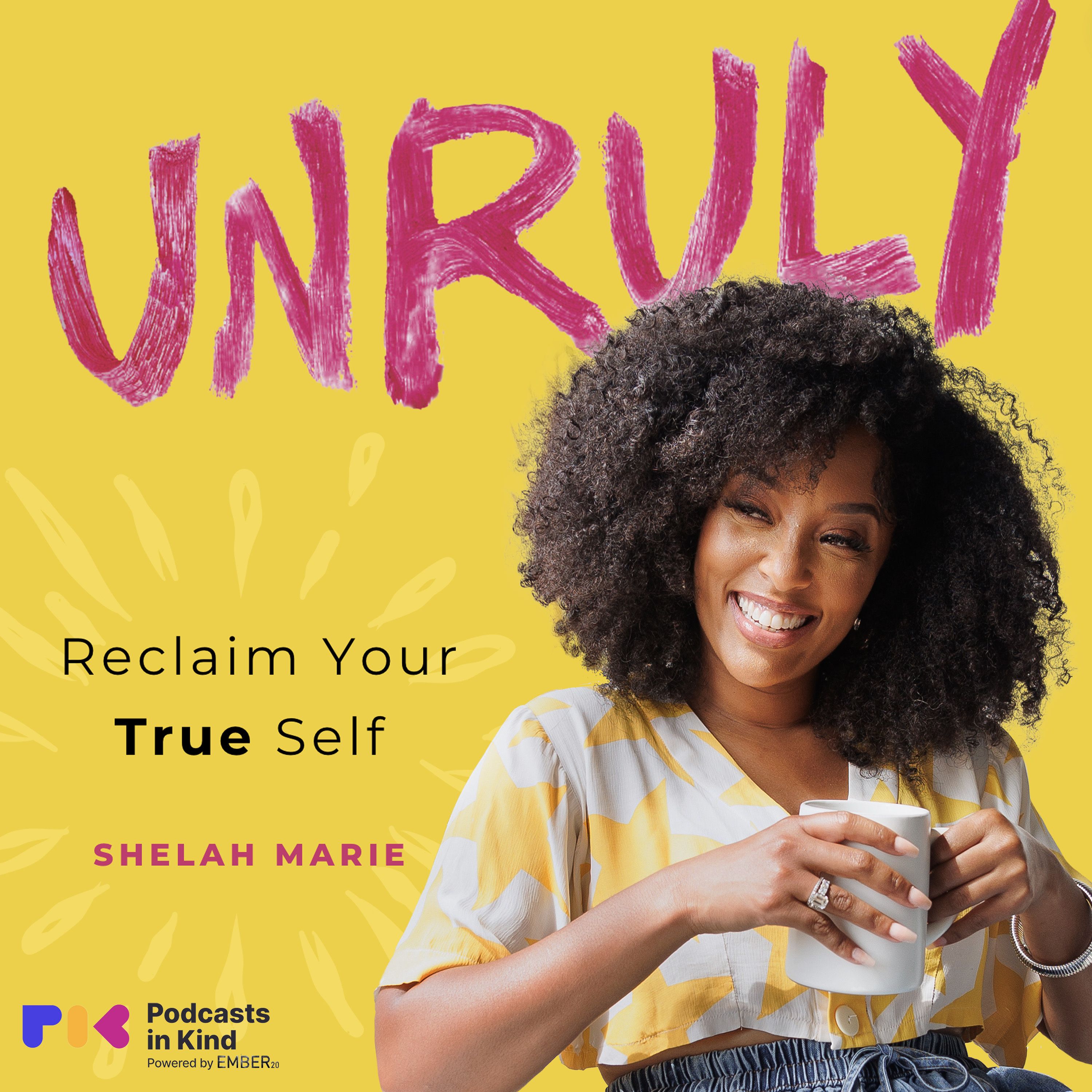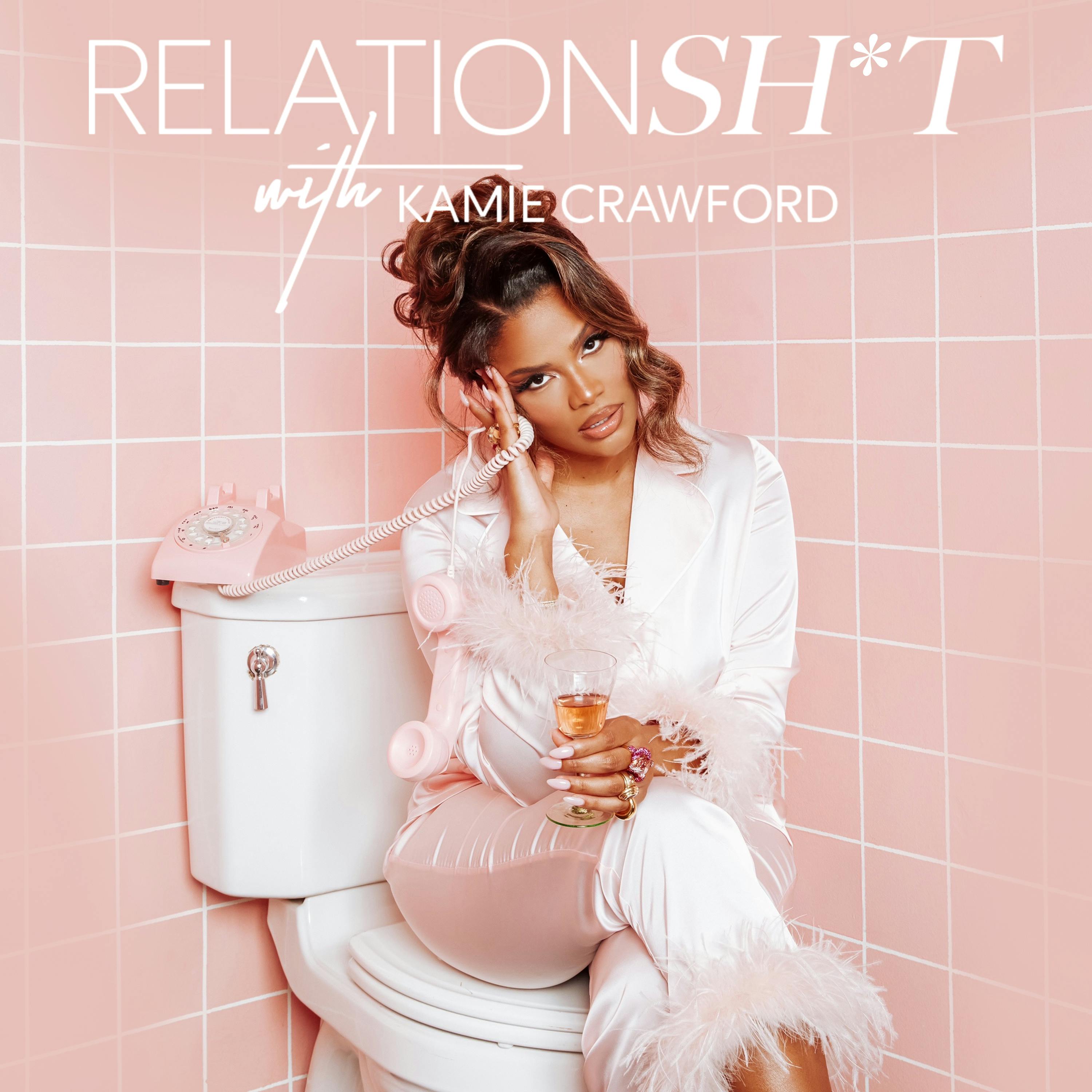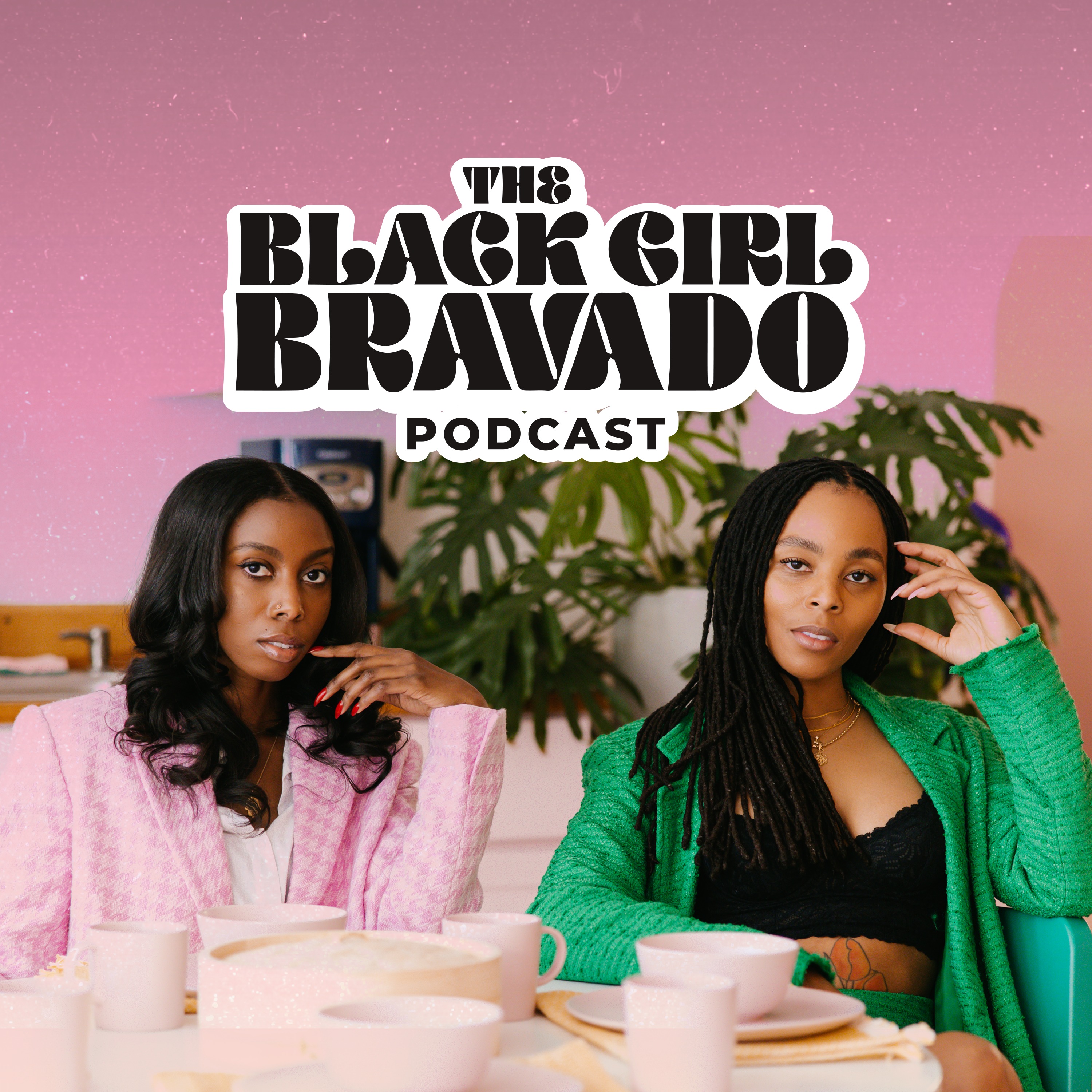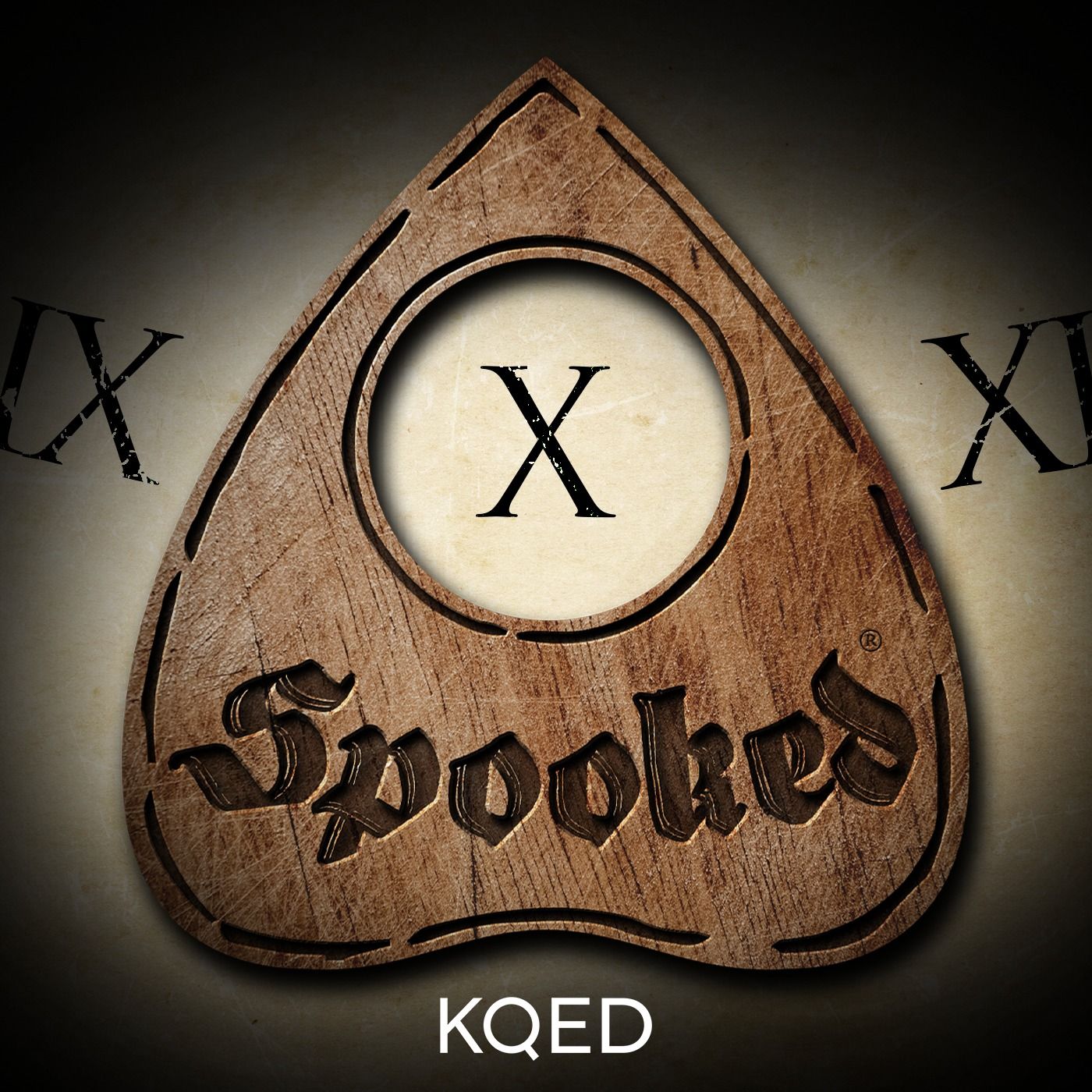
Muse & Mastery
Hosted by Aliya Cheyanne, Muse & Mastery is a digital sanctuary for creative thinkers, makers, and seekers. Each episode explores how we can live, create, and evolve in alignment with our purpose.
Muse & Mastery
Entrepreneurial Success at Any Age ft. Jannette Anderson | Ep. 35
Age is but a number, especially when it comes to entrepreneurship!
Discover the secrets to a thriving in business at any stage of life as I sit down with Jannette Anderson, the "Maturepreneur Maverick." Tune in as Jannette shares her expertise on maturepreneurship, unveiling how seasoned professionals are redefining retirement. Strap in for actionable business insights, whether you're just starting out or looking to pivot your career. Join us as we champion a future where entrepreneurial spirit knows no age limit.
Watch this episode on YouTube!
More from Jannette:
- Women Creating Bold Businesses and Bold Lives Together!
- Business Booster Roadmap Your Next Steps to Success
- How to Choose the Right Business Coach for You
- Maturepreneur™ Conference!
- Schedule a What's Next Clarity Consultation with Jannette
Theme Music:
She No Dull Beat by Nana Kwabena
Festivities in Belize by RAGE Productions
Enjoy the episode?
- Share it with friends!
- Send a voice note or text!
- Rate & review the podcast!
Follow @museandmasterypod on your favorite SM platforms!
Watch full interviews here on YouTube!
Join me over on Substack!
Check out my favorite brands and snag a discount!
Grab a guided journal here!
Are you a creative, solopreneur or entrepreneur who’d like to be featured on Muse & Mastery? Let me know here!
Hosted by Buzzsprout. See the Buzzsprout - Privacy Policy here.
Hi everyone, Welcome back to the Prolific Hub podcast. I'm your host, Aaliyah Cheyenne, and I'm so excited today to be joined by Jeanette Anderson. Hi, Jeanette, so excited to have you on. So I'm not sure how many folks have ever heard of Podmatch, but it's a really cool platform where you get a lot of podcasting resources and you can also connect with really incredible people to invite guests on your show. And for a time I was part of that community and I stumbled across Jeanette's incredible profile and was just instantly. I instantly gravitated toward just her energy on the profile and what she was talking about in terms of a term I've never heard before, which is maturepreneurship, and I'm so excited to jump into this topic with Jeanette today. But before we do that, Jeanette, I would love for you to introduce yourself to the audience.
Jannette Anderson:All right, Hello everybody. I am now called the maturepreneur maverick and a lot of what I'm excited about is what we're going to be talking about today. But the short version of my background is I've been supporting entrepreneurs and growing their business for about 40 years now a little over 40 years. When I stop and do that, it always surprises me. The other half of my background is personal development facilitation, teaching, personal growth courses and facilitating coaching, certification programs that kind of work. So my specialty is getting the four inches between your ears working so your business can work.
Jannette Anderson:And I love, love, love helping people figure out what their why is why they do what they do, their purpose so that they can figure out how to profit themselves and other people from it. That's my real inspiration and joy in life, and now I really focus on doing that. For the past 10 years, I've been focused on doing that with women, and now I really focus on doing that. For the past 10 years, I've been focused on doing that with women, and now I'm expanding my market to include maturepreneurs because we'll as we'll talk about they need some support.
Aliya Cheyanne:So yeah, yeah, thank you so much. That's so incredible.
Jannette Anderson:Yeah, the thing that people don't necessarily know is I call myself polycomerous. I used to say homeless, but then people would get distressed, so now I say polycomerous and they just get a little confused. Basically, I'm a digital nomad. I sold my house and everything I owned nine years ago and now I just run it well. I'm pathologically allergic to winter. I'm from Calgary Canada, and so that means about five months of the year at least I'm not here because it's not fun. So I go to work. So that's a little bit about me as well.
Aliya Cheyanne:I love that. I've had a guest in the past who's also talked about aspiring to be more of a nomad, and I love the whole digital nomad community. We've been seeing such an increase online, especially on platforms like TikTok, of people with van life in different circumstances, either by choice or by force. I think that's really cool that you have done it by choice, so thank you for sharing that. Yeah, and I love what you said in your introduction about helping people discover the why and their purpose. I think 40 years of experience is just such a wealth of knowledge. That's a long time Like. That's incredible.
Aliya Cheyanne:I'm really grateful to have you here today. So I just want to get into this whole topic of maturepreneurship. Like I told you, it's new to me, it's a new term, but I think it's so cool. And we hear about solopreneurship or solopreneurs, we hear about entrepreneurship and entrepreneurs, but I have not heard of the maturepreneur before. Can you tell us more about who the maturepreneur is and what that means?
Jannette Anderson:Sure. So I think it's a term I came up with, but you know it might. It's kind of out there in the zeitgeist now, so I'm not sure who was first. Basically it is those who are. How I define it is those who are 55 plus and hashtag not done by a long shot.
Jannette Anderson:So what most people don't realize is that, first of all, what used to be the case we retire at 65 and we were dead by 75 is so not the case anymore. Part of why they set the retirement age at 65 is because they wouldn't have to carry people for very long. The government did that intentionally. That's not the case now. People are living an additional 20, 30, 40 years, living to 100. There's more 100-year-olds on the planet right now than there has been cumulatively in all of history, and people who are being born now will live to 120 or 130 at least.
Jannette Anderson:The fact is that people either can't afford to retire. So about 65% of Canadians and between 50 and 90% of Americans, depending on the demographic band and the state, cannot afford to retire, and it's at least that bad in other parts of the world. That means they're making choices between paying the rent or getting their meds, buying food or paying their phone bill, or in some cases it's not that dire, but it means they can't travel or have the lifestyle they want. They may have to sell their home and downsize. And for others, on the other end of the spectrum, they're living at or below the poverty level, especially those who are just getting government payment, like government retirement. They're usually at or below the poverty level and most people don't know that. They don't know that there's that many people that are that disadvantaged. They think that people just retire and go off in the sunset and golf and net. But that's not the reality for most people and there's a lot of focus on retirement, but there's very little focus on those who want to refire. So not only do they economically need to work, but also the vast majority of people who are older want to contribute, want to give, want to stay vital.
Jannette Anderson:Statistically, if you have a purpose when you retire quote unquote retire or as you get older, you're going to live seven years longer, and a qualitative seven years longer. So the reality is that people either want to keep working or have to keep working, but for most it's some combination of both, because we just like not many people, can see spending the next 20 or 30 or 40 years, knitting or golfing or playing pickleball, like that's just not enough. So there's a whole world of people coming into entrepreneurship. In fact, there's this global trend that no one's paying attention to. The biggest cohort of entrepreneurs ever to come into the business marketplace is happening right now and very few people are addressing it or serving it, and yet it's a huge, huge market. Entrepreneurs need to work, choose to work, want to continue to add value and, importantly, society cannot afford to lose that expertise and experience. So there's a new trend happening that people need to wake up and pay attention to.
Aliya Cheyanne:Yeah, so many people think that you know once you retire, like that's it you're just counting down the days until something inevitable happens. And no, like, those are supposed to be the best years. Who may not have leaned into their why or their purpose prior to 55. Like, maybe they were working jobs to take care of families and make ends meet and now there's an opportunity where they can explore the why and their purpose and take up a new challenge and, you know, share expertise or learn something and become a powerhouse in that space. So I think that's really special. And when you're sharing those stats about retirement, I can think about that. In my own life and in my own family I have family who's not ready for retirement and they're getting closer to it, which is heartbreaking. You work your whole life, but I think that's really interesting to gain some perspective and think about what are some alternatives, especially as people are living much longer.
Jannette Anderson:I hadn't heard that stat before about people being born now, like possibly living to 120, like yep, yes, yeah, exactly, which means that 60 will be middle age, like truly middle age, and so people need to start thinking about you know, okay, I'm gonna reinvent myself probably a dozen times. Yeah, you know, it's not just one career and then done, retiring, going and live in an old folks home, like that's not the reality. And, by the way, on that note, there's a lot of myths about getting older. Do you know that only one to 2% of North Americans end up in assisted living? We kind of assume that everybody's gonna end up in a care facility. That's not true.
Jannette Anderson:The vast majority of people live in their homes, live with their families until they die, and we think that we don't really have any choice but to decline and decrepitude. And that's not the case at all yeah, that's, that's very.
Aliya Cheyanne:I fully believe that too, because it's also the cost of assisted living. Like most people can't even afford to do that, and you know we're talking about maturepreneurs. But I think about it now at my age and I have so many peers who are like I don't want to work until 65. Like, I want to get a head start on figuring things out and building my own thing so that when I do reach that age like I am the expert. I built this thing and it can carry on to sustain me.
Aliya Cheyanne:It could be a part of my legacy or whatever the case may be. So I think it's really fascinating. So you've talked a little bit about what the typical mature preneur looks like, like the age group, like sort of the life circumstances that catapult them into that space, and I would love to know something that you've seen maturepreneurs like maybe struggle with. Like we were talking a little bit before we hopped on to record, about where you come in in this work more recently, about the things that they need and how you're supporting them. So can you talk a little bit more about that?
Jannette Anderson:Well, where this really kind of came on my radar. You know, as we shift, then our demographic often shifts as entrepreneurs, and I was on something called the marketers cruise, which is a work cruise. People kind of roll their eyes, but really I work harder on that cruise than I do when I'm in my office, and that cruise is marketers from all around the world. I was in 2020, I was talking to a group of people at something called Pizza and Profits, a networking event. Someone asked me what do you do? There was a group of four people, four guys, and I was mid-sentence answering him and he turned and started talking to someone else. So my immediate reaction was well, he's kind of a dick. So I excuse myself and went to the next group and I was. The exact same thing happened.
Jannette Anderson:Someone asked me what do you do? Mid-sentence turn and start talking to someone else. So I was like, okay, they can't all be dicks. Maybe it's me, maybe I'm not showing up, maybe I'm not, you know, but I'm pretty present and pretty visible. I've got blue hair and polka dot glasses. I'm a fairly present, energetic, energetic woman. No, it wasn't me, okay. So then, what could it be? So then I started getting curious because then I noticed every single woman over 60 was completely ignored and literally invisible, and some of the men that are older as well. It's more prevalent for women and so I started to get really curious about this phenomenon.
Jannette Anderson:Well, frankly, I started to get really pissed off about it is what the reality is, because, um, like seriously, we've got so much expertise, so much experience, um, so much value to add and you're gonna wisdom everything? Yeah, exactly, I don't think so. And so, um, that started me to really look into the phenomenon and what was going on and, like I said, I think there's two global epidemics and two global trends that people are not paying attention to. The one global epidemic is people who are can't afford to retire, who you know, a huge demographic that needs financial support, needs to earn money.
Jannette Anderson:That's one thing that people don't know. The second epidemic is the epidemic of loneliness. Since COVID, that was a big issue there. People thought, oh well, we're back to normal, it's okay, we aren't. People have not come back out in the same way. Even if you go to networking events, you'll notice there's a difference. But especially for older people, they tend to be more isolated, and if they're no longer working, a lot of their support structure goes away. So they tend to be quite lonely as well, and loneliness will take eight years off of your life, yeah, so it is important that they get back into community, and so becoming an entrepreneur is another way to do that, although entrepreneurship can also be very lonely.
Aliya Cheyanne:So you have to find ways to connect.
Jannette Anderson:As you know, you've been doing this a while. It can be lonely. We spend a lot of time talking to people one-to-one, maybe on the screen, but it's not the same. And then the two trends are the trends? The largest cohort of entrepreneurs ever in history coming into the market and the largest kind of paradoxically the largest wealth transfer in history had control approximately 79.5% of the wealth in North America. So think about that. One demographic has 80% of the wealth and they're transferring it now to Gen X and millennials, and so the greatest wealth transfer is happening right now. They have all that money to invest in businesses and again, no one's targeting them. When you watch commercials, they're all for Depends and Viagra and seniors homes. They're not targeting that whole market that has literally trillions of dollars to invest in business, in social enterprises, in nonprofits. So we need to really recognize these trends and the incredible kind of how they come together to create this amazing moment in history where things are going to change significantly.
Aliya Cheyanne:I feel like there's so much wisdom to gain from this demographic and there's this group. There's so much just rich knowledge and experience. So I'm very curious to know what you think and if you have any advice to share, based on your experience, for people who are in their, you know, teens starting businesses, like their parents are helping them write books and start brands, and people in their 20s and 30s and 40s Like I. Would love to know just some wisdom or some advice you've gained through your experience and also working with your clients.
Jannette Anderson:Awesome. Okay, well, there's a lot of answers to that question. First of all, I've met a lot of very wise and dynamic and incredible young people and I've met some not very wise kind of stupid older people. Just being older doesn't make you necessarily wise, of course, the advantage is we have experience and context. But older people, just being older doesn't make you necessarily wise. Of course, the advantages we have experience and context. So what I mean by that is the advantage wisdom workers is.
Jannette Anderson:What I call them bring to the marketplace, whether it's in corporations or businesses or their own businesses or nonprofits is that they have a historical perspective that younger generations don't have, which can be both positive and negative, because it can be them living in the past and trying to make everything like it used to be. But it can also be that they bring the wisdom of what not to do, based on experience, and they bring context to conversations. Actually, this demographic is better at innovation because they can eliminate things that don't work. Younger people, younger generations, are good at innovation because they're starting with a blank slate, and that can be very positive. When you put the two together, it's really powerful. We need to focus more on intergenerational collaboration and support, and that's where a lot of organizations and businesses are falling down. They're not hiring older workers because they think, well, they won't be with us long. The reality is that millennial will be with you, at most two and a half years.
Aliya Cheyanne:They change jobs every two years. Yeah, I'm a testament of that.
Jannette Anderson:Yeah, exactly that's the trend with that demographic. They change jobs every two years, whereas a boomer will be with you for 10 to 15 to 20 years, even if they're 60. So really, the prejudices and the assumptions are kind of wonky and need to be adjusted. Not only that, but there's this happiness you we're happiest when we're young and we're happiest when we're older, and we're the most stressed out between 30 and 55. And so when you bring in older workers into the workplace, whether it's a small business or a big business, they help morale, morale immediately goes up, retention goes up and people are more productive because they bring more happiness and emotional intelligence to the workplace. Now, not everyone you know, you got some grumpy old people.
Aliya Cheyanne:By and large.
Jannette Anderson:By and large they are. We are happiest at this age, largely because we're not as stressed out about you know, we should still be stressed by money, but we're not as stressed out about keeping up with the Joneses.
Jannette Anderson:We're not as stressed out about appearances and approval, as we were when we were younger, and, oh my God, that takes a lot of weight off your shoulders. So, as far as advice for younger people and I would say actually advice for anyone at any age it takes courage to step into entrepreneurship because there are risks. It takes courage to do that. Courage is not the absence of fear to do that. Courage is not the outpour of fear, it's the commitment to do it. Anyway. I would say to any entrepreneur is be willing to do it anyways, in spite of your fear, in spite of your reservations, in spite of your not enough BS story about how you're not enough and you don't have enough accreditation, or you don't have enough experience or you're not technical enough. Whatever the not enough story is, first of all, likely it's BS. Secondly, if it's not, go and get skills you need. But courage at any age is required to be an entrepreneur, and ongoing courage, because almost every day you got to get up and face uncertainty. Now the reality is, if you're an employee, you face uncertainty every day too. We just have more of an illusion of security around employment, but it is an illusion. The second thing that I would say to young people is to be willing to make mistakes and I would also say this to older people but they're more resistant to that because they don't have as much time, or the perception is they don't have as much time. The time to screw up is any time. Basically, when you fail forward, faster then you get back up and you are successful, faster we are more resistant to falling on our face as we get older. So I would say to young people be really willing to not get it right, and that can be challenging, because when we're young we tend to care about approval. We tend to care about, you know, not not looking bad. So that's one of the keys to being a successful entrepreneur is being willing to get it wrong.
Jannette Anderson:The last piece of advice that I would say is most people do not and especially women do not ask for enough support. You know, when they're putting up a big high rise, they dig a big, deep, bejesus hole for that support structure to go in. Whatever you want to build, you need a bigger support structure than you think you do. So call in coaches, resource support networks, mastermind groups, communities of interest network, get mentors, do whatever you need to support yourself. And stepping into this, because lone wolves simply struggle. There's nothing glamorous about being a lone wolf. Get help. Help you get, the faster you'll grow, the more likely you will be to avoid issues. That said, choose your help wisely, because entrepreneurs tend to go and buy this and that and this and that, because this guru says you need to grow quickly using this method.
Jannette Anderson:And this one said they all have their cookie cutter solutions. Don't buy those. With someone who will work with you to help you grow your business your way, Do not buy cookie cutter solutions and try and fit yourself into them, because you likely won't and you won't do it and you won't be successful. So those are some of the things that I see most people struggle with Not being willing to risk, not getting enough support and trying to force themselves into moles that don't fit for them or trying to do things ahead of the stage that they're at. That will stall you out as well. So and that helps when you have support to be able to see that as well- yeah, my goodness, all of that is such incredible advice, so thank you.
Aliya Cheyanne:Oh, my goodness, all of that is such incredible advice, so thank you. I'm sure that folks listening will be able to take so much from that. I love the general message of you know, feel the fear and do it anyway. You know, fear can hold us back from so many things in our personal lives and in our careers. So I love this just advice around being courageous and doing the scary thing anyway. I think that's really powerful and I also think it's such important advice when it comes to building the team around you and the people you have around you in general.
Aliya Cheyanne:I hear that a lot too among entrepreneurs and solopreneurs that who you have around you makes a huge difference and how that supports you. So do you have any tips or advice for folks who are looking to find the community, the mentor, the program of support, especially for folks who might not have the resources to go like? Some people can frivolously go out and get any cookie cutter option and waste resources that way. Some folks really can't. So I would love to know if you have any tips around you know, seeking that mentorship and seeking that community around you and seeking those support systems to help you grow and sustain your business.
Jannette Anderson:Yeah, yes, I have a lot. I have a soapbox about this because I have been in this expertpreneur online business world now for a few decades. Yeah, I see a lot of the gurus at the top of the mountain selling solutions that work at the top of the mountain when you have a list of 40,000 and a team and an infrastructure and influence and so forth. But they're selling the solutions, the leveraging solutions like how to create a three day event to make a million dollars in a weekend which, by the way, is BS to people who are coming up the mountain and who don't have that. So if I hear one more time man, I wish I'd met you $50,000 ago I will weep again because I hear that way too often, and what I would say is some really practical things are.
Jannette Anderson:first of all, well, contact me and I'll give you something called the business success roadmap that helps you figure out what stage you're at and what you should be doing at that stage and not doing at that stage.
Aliya Cheyanne:And we'll link that in the show notes.
Jannette Anderson:The other thing that I would suggest is invest before you think you can, because you're going to waste money on things that are not helpful, and so you'll actually end up saving money in the long term. You know little things like I tell people. For instance, don't create a website until you've been in business for six months at least, if not a year, because you don't know what conversation you're having with what market, until you've actually delivered your products and services to a to a number of customers. Find out a is that really your ideal client? B is that the kind of work you want to do? And c is that really the problem you're solving? Once you've figured that out for sure, based on real life experience, then you can have that conversation with that ideal client on your website, because all marketing is a one-to-one conversation. And so if you build a website before you know that, before you've done delivery for at least six months to a year, you're going to redo your website and guarantee you and therefore you're going to waste two to $3,000 at least a month in time, if not two. So don't listen to people who say, oh, you need your branding, you need your business cards, you need your website before you can start. You don't need any of that at all. You don't need branding. You don't need business cards. If you want a business card, go get a generic card. Put your name and phone number and email address on it and that's it. Or get an electronic card that does the same thing and that's it. Or get an electronic card that does the same thing. So when you have experienced support, then you will save yourself a lot of time and money. So, yes, it feels like it's an investment, but the reality is you'll actually save time and money when you get the right support.
Jannette Anderson:Now, the right support is the key here. Make sure it's someone that you've checked out, that you resonate with, who will push you out of your comfort zone. If you're getting a coach or a mentor who wants you to be comfortable, they are not the right person for you, because if you're comfortable as an entrepreneur, you're not moving forward. I guarantee you you need to be outside your comfort zone to be making growth and progress. You need someone that has the skills and expertise that you need. They don't necessarily have to have a million dollar business themselves. Tiger Wood has four coaches. None of his four coaches have won the US Open or whatever the title is for that yeah it's not the.
Aliya Cheyanne:US.
Jannette Anderson:Open, but whatever it is, they haven't won that, but they coach him because they are experts in their field and they make him better so that he can win. So make sure your coaches or people who support you are good. Where you have gaps, okay, and that they can help you see those gaps and avoid them. The other thing that I would say is you really, in terms of communities of support, there are lots that you can pay for Talk to some of the members first, privately, as an aside, to find out what tangible benefits they have gotten from participation. If they say things like, well, I really like the people, or I do a lot of coffee chats, or you know that's not the group. What you want are people who say, yeah, I got a new client because of a referral from this person, or I'm doing a joint venture webinar with that person, or tangible results for your business.
Jannette Anderson:If the people in that group are not saying that that is not the right group for you, it's going to be a distraction, it's going to be social, it's going to be busyness that makes you think you're doing things to work on your business but you're not actually getting results. So, whether it's a coach or a group. Make sure you talk to them and that they can point you to the results and they can give you testimonials not just testimonials, because we always just select the best ones. They can put you together with their clients so you can get honest feedback about does this person support or this program support in the way I need, in the way I work? Then you'll get ROI. But if you don't do that due diligence, if you get caught up in the hype and in the excitement and the promises, you're going to waste a lot of money, I guarantee you.
Aliya Cheyanne:Yeah, I think all of that is such really incredible advice. Thank you for sharing that. I know that a lot of folks will just value that and it gives a lot of perspective around who you should be looking for. I love the idea of really identifying the gaps and the areas that need support and improvement and looking for mentors to help you in those specific areas, because so many times we think a mentor should be all encompassing of everything and that's not always the case. I saw a quick little video on TikTok the other day and a young woman was talking about how she has a board of mentors. She has like eight mentors and one of them in particular solely helps her with negotiating salaries for her job. He doesn't do anything else, right, he helps her with salary negotiations. So I think that's really interesting. Yeah, exactly.
Jannette Anderson:Well, and you know, when we're in university, you don't have one professor. You have professors that are experts in the market, and so I just put a resource that you can also put in your show notes. It's a free ebook that I wrote on how to choose the right business coach for you, so it's a series of questions and things to consider that will help you make the right decision about who you want to work with.
Aliya Cheyanne:This has been really great. I would love to know if you have any just sort of final thoughts on this topic, like anything we didn't get get to to cover that you think is really important, about not just the entrepreneurial space but maturepreneurship, anything, any final thoughts you'd like to share?
Jannette Anderson:well coming back to your community comment. We are building out a community for maturepreneurs, a low cost community where you can come and get expert speakers and networking and masterminding. That's launching this month. So if you go to maturepreneurworld, you'll find out about a conference we have coming up, but also there soon we'll have the network information there.
Jannette Anderson:I would say, truly the biggest thing that's important is to. There's a Mary Oliver poem and I'm going to butcher the quote here, but it's something like what are you going to do with your one wild and precious life? And so what I want people of any age to think of when they're listening to this is when you look back on your life, what difference do you want to have made? What do you want to be known for? Because I believe that each of us is here to be the difference that only we can be. Only you can support the people that you're here to support, can make the difference that you're here to make, and it's never too late, as long as you're on this side of the dirt, to start being that difference. So choose today to step up and be the difference that only you can be.
Aliya Cheyanne:I love that. Thank you so much for that. Folks know where to find you, where to find your work and to learn more about your offerings.
Jannette Anderson:Well, maturepreneur world is a site called bodacityca B-O-D-A-C-I-T-Yca. Bodacity is bold and audacious. It's a real word. I didn't make it up. That's my older website that has more information about me and coaching and so forth, but really the maturepreneur world is where all the new stuff's going to be coming out. I also have a Facebook group called the purpose and profit sisterhood, so if you're a female entrepreneur and you'd like support in your journey, please come and join us. We have podcasts, we have resources. In fact, aaliyah is going to be on the podcast very soon so you can come and listen to her. Reach out If I can be of support in helping you figure out what to do at the next stage. I would love to do that. I want people more people of any age and stage to get support with what's next so that they can make that next step with some confidence and keep going and giving their gifts to the world.
Aliya Cheyanne:Incredible. Thank you so much for just all of the wisdom you shared today, for your time, for your energy. Like this has been really great, and I know our listeners will love this episode and for anyone who is super excited about anything they heard today, be sure to check out the links in the show notes below to learn more about Jeanette and her offerings, all the different sites and working groups that you can join, and thank you so much for tuning in and I'll catch you in the next episode.
Podcasts we love
Check out these other fine podcasts recommended by us, not an algorithm.

ShxtsNGigs
shxtsngigs
LOVERS by shan
LOVERS by shan
Can't Afford Therapy
Can't Afford Therapy Podcast
Around The Way Curls
Antoinette Lee & Shanti Mayers
UNRULY WITH SHELAH MARIE
UNRULY WITH SHELAH MARIE
Decisions, Decisions
The Black Effect and iHeartPodcasts
Selective Ignorance with Mandii B
The Black Effect and iHeartPodcasts
The Slumflower Hour
Chidera Eggerue
Relationsh*t with Kamie Crawford
Kamie Crawford
Good Moms Bad Choices
The Black Effect and iHeartPodcasts
The Black Girl Bravado
Black Girl Bravado
Slay Girl Slay
Ashley Leggs
She's So Lucky
She's So Lucky
SpeakEZ Black Renaissance Podcast
Qadry Harris, M. Div.
Bobo's Void
Bobo, Donavon and MangoUpstream
Upstream
Caribbean Mystics
SpectreVision Radio
Spooked
KQED and Snap Studios
A Little Juju Podcast
SpectreVision Radio
Magic in the United States
Magic in the United States
Sensual Faith Podcast with Lyvonne Briggs
Lyvonne Briggs
Our Ancestors Were Messy
Nichole Hill
CultureCon Uncut
Spotify Studios
Hold For Maintenance
Hold For Maintenance

